BEAM may have just launched, but their products and formulas reflect years of experience. Last month we covered the BEAM Pre Workout, and not only did the flavors blow us away, the way it performed was somehow even better. A pre workout can say a lot about a brand, and it showed that BEAM is all about creating premium supplements to help your workouts be amazing.
That was just a glimpse of what their team is capable of, now it’s time to see how this newcomer tackles a challenging category, vegan protein powders. Rumor has it that this one tastes dynamite.
BEAM Vegan Protein: More Than a Plant-Based Protein Powder
While every single product BEAM offers is unique in some way, the one that stands out most in our opinions is their 100% Premium Vegan Protein Powder. They use extremely high quality plant-based protein sources, and somehow managed to make it taste phenomenal. We’ve heard big claims, such as "it’s the best tasting vegan protein out there", which is a pretty bold statement since there are some fierce competitors on the market nowadays.
We’ve already been extremely impressed with several other supplements that BEAM sent us over to try out, but this one definitely blew us away. You’re probably wondering what makes BEAM Vegan Protein so unique? Well keep reading, because we’re about to spill all the secrets of what makes this vegan protein a must try product from BEAM.
In this post we’re going to highlight what makes BEAM Vegan Protein powder stand out from the rest of the options in the industry! It has a few key ingredients you won’t find anywhere else, and that’s only a small piece of what makes this a premium vegan protein powder. BEAM truly is just getting started on their journey, and they have a lot more to come. You can stay up to date by signing up for PricePlow's BEAM news alerts, it’s that simple!
Be Amazing vegan protein – Deals and Price Drop Alerts
Get Price Alerts
No spam, no scams.
Disclosure: PricePlow relies on pricing from stores with which we have a business relationship. We work hard to keep pricing current, but you may find a better offer.
Posts are sponsored in part by the retailers and/or brands listed on this page.
This area is reserved for Team PricePlow's upcoming Product Review video.
Subscribe to our channel and sign up for notifications so you catch it when it goes live!
BEAM 100% Vegan Protein Macronutrient Breakdown
First let’s see how BEAM Vegan Protein stacks up on a calorie and macronutrient basis. And after seeing their numbers, yet again, it’s pretty difficult to believe this is a plant protein. Typically vegan protein powders can really rack up the carbs, but not with BEAM -- and that’s very impressive. Getting enough carbs and fats is the easy part, but protein is a whole different story...which is why a lot of people turn to using protein powders to help hit their daily intake.
BEAM Vegan Protein is the perfect way to get some extra protein in without the added carbs, fats, sugars, or dairy in this case.
Here’s what one serving (29.5g) of BEAM Vegan Protein provides:
-
Calories: 100
-
Protein: 20g
-
Carbs: 3g
-
Sugars: 0g
-
Fiber: 1g
-
-
Fat: 0.5g
BEAM Vegan Protein has one of the best macronutrient profiles we’ve seen in a vegan protein powder. It’s incredibly clean, and packs 20g of protein per serving, which will be a great way to fill in any gap left by your diet. Also the taste makes those macronutrients truly unbelievable -- there’s not even 1g of sugar. So let’s find out what ingredients BEAM uses to pull off this incredible feat!
But wait...before we dive into the ingredients, you first need to know a few key things about plant-based protein powders to understand what makes them different from dairy-based products. In this next section, we’re going to outline some common issues that arise during the formulation of a vegan protein that must be addressed to create a well-rounded product consumers will actually enjoy.
The Issues With Plant-Based Protein Powders
The main things we need to address are: protein quality, taste, texture, and mixability. In order to determine if any protein powder is good, it’s a good idea to assess it based on several criteria. We will even highlight specific things to look for in a plant protein, that can help you determine if it’s worth your hard earned money!
-
Complete vs Incomplete Protein Sources
First of all, let’s talk about protein quality and explain the difference between a complete and incomplete protein source. A complete protein source is typically produced from animal based products, such as fish, dairy, meat, and eggs. It must contain all nine essential amino acids, in appropriate proportions.
Amino acids are the building blocks of proteins, which are divided up into two main categories, nonessential and essential. Non-essential amino acids don’t necessarily have to be consumed because the body can make them from other compounds endogenously. On the other hand, the body cannot produce any of the nine essential amino acids, therefore you have to obtain them from your diet. A prime example of a complete protein that dominates the supplement industry is whey protein.
An incomplete protein source means that it lacks one or more of the nine essential amino acids. This normally includes several plant-based protein sources, such as rice or beans. There are some plant proteins that are complete, but it’s a very short list.
The solution to incomplete protein sources is that you can fix this issue by combining them together to create a complete protein, a very crucial step that often gets missed when adapting a vegan or vegetarian diet. This is especially true if you want to build muscle -- you must be conscious of the protein quality you choose in order to get the appropriate amount of essential amino acids.
So if you see a vegan or plant-based protein powder and it only has one source listed, be very cautious because it may not be as helpful as you hope in reaching your health and fitness goals.
-
Taste, Texture, and Mixability, Oh My...
So maybe you find a plant protein that looks great ingredient wise, how’s the taste and texture? Beyond protein quality, which is always number one in our minds, having a great flavor and consistency is typically what reels people in. And we definitely don’t blame you! With all the great options that exist, why settle for something that’s bland and has the consistency of sand paper?
You definitely deserve a better product than that, and with BEAM Vegan Protein, that’s exactly what you’re going to get. They don’t call their products premium for nothing. Sure their labels are eye-catching and the ingredients are high quality, but the flavor, mixability, and smooth consistency really bring this protein over the top. And that’s what we expect from a brand that has a team with years of experience.
BEAM Ingredients
Now that you understand what to look for in a protein powder, and more specifically a plant-based one, let’s see how BEAM does things a little differently with their vegan protein.
Since this is a protein powder, we’re mainly going to be talking about the protein sources they utilized. However, there are a few extras BEAM adds in, you can’t find anywhere else. Lastly, we will touch on how they pull off the amazing flavor and texture that makes it taste more like a dessert than a protein rich drink.
Protein Sources - Pea, Mung Bean, and Pumpkin Seed
BEAM tackles the "complete protein" issue head-on by including three different plant proteins, Pea Protein, Mung Bean Protein (as Smooth Protein), and Pumpkin Seed Protein (as Smooth Protein).
-
Pea Protein
They don't list the exact dosages for each protein source, but based on what we know about reading ingredient labels, you can tell pea protein yields the highest amount of protein, followed by mung bean second, and pumpkin seed third (they could also have equivalent amounts).
This is great to see, because pea protein is one of the very few plant protein sources that’s actually considered complete,[1] meaning it contains sufficient amounts of all nine essential amino acids. Furthermore, studies show that pea protein is just as effective as whey protein for increasing muscle mass.[2]
-
Mung Bean Protein (as Smooth Protein)
Pea protein is a very common ingredient in plant-based protein powders, but what you don’t see everyday is mung bean protein. This is more of an unique ingredient, but it packs a host of health benefits!
Studies show that mung beans are a good source of protein, and they’re specifically rich in leucine.[3] Leucine is the main branched chain amino acid responsible for initiating muscle protein synthesis.
Even though mung beans are a little bit low in two amino acids, methionine and cysteine,[3] when combined with the other protein sources in BEAM Vegan Protein, that will not be an issue at all. Furthermore, mung beans contain various bioactive peptides that may express antiviral and antibacterial effects, along with serving as an inhibitor of angiotensin-converting enzyme (ACE).[3] So you’re not only getting a great protein source, it has some health benefits as well!
-
Pumpkin Seed Protein (as Smooth Protein)
The last protein source included in BEAM Vegan Protein is pumpkin seed protein, another semi-common addition to plant-based protein powders. Pumpkin seeds are known for containing a fairly high amount of protein, in addition to packing a solid antioxidant profile.[4,5]
It’s not considered to be a complete protein, since studies show it’s lacking in the essential amino acids lysine and threonine.[6] But once again, that’s why BEAM combines three different sources to give you a good spectrum of each essential amino acid. Pumpkin seeds also contain a wide variety of vitamins, minerals, and other bioactive compounds that can provide some extra health benefits.[6]
Overall, this is a very solid and unique blend of plant proteins, and they’re delivering everything you need to recover from intense training sessions and gain some muscle mass!
-
Smooth Protein From Compound Solutions
One of the main reasons why BEAM Vegan Protein has such a great texture compared to others on the market is because two of their protein sources are trademarked as Smooth Protein.
Compound Solutions, a leading ingredient supplier, developed a specific manufacturing process that can yield high-quality plant protein powders without any grittiness. They named it Smooth Protein, and it definitely helps take plant proteins to another level. When formulating BEAM Vegan Protein, BEAM knew it would be the perfect inclusion to create the consistency they were looking for!
-
Other Ingredients
BEAM throws in a few extra ingredients and one is something that we’ve never seen in any protein powder, trace minerals from mineralized red algae trademarked as Aquamin.
-
Aquamin : For Bone and Joint Health
When you’re pounding away at the weights, your muscles are not the only thing that takes a beating, your joints and bones need some nutrients to recover as well. That’s exactly why BEAM includes Aquamin in their vegan protein powder.
Aquamin is a natural, marine-sourced, multi-mineral complex extracted from red algae (Lithothamnion spp), that’s specifically rich in calcium.[7] This is a great addition to a plant-based protein, because the majority of dietary calcium comes from dairy products. Studies show Aquamin can support bone and joint health, which is crucial when trying to optimize health and performance.[8,9] So in addition to the muscle building benefits, you're also making sure your joints and bones are staying strong!
Many users of this supplement will simply be looking for dairy-free alternatives, but many will also be full-fledged vegetarians and vegans. In the latter case, it's important to note that poorly-devised vegan diets contribute to bone loss.[10] To avoid this, Aquamin (on top of the protein itself) may be able to help a bit.
-
Ingredients That Deliver A Rich Flavor and Smooth Consistency
In order to make BEAM Vegan Protein taste like a sweet treat, they had to add in a couple ingredients to accomplish that, without ruining the macros!
Here’s a list of what else is included in BEAM Vegan Protein:
-
Clean Cream: improves the consistency, texture, and adds creaminess
-
Apple Fiber and Blueberry Fiber: adds thickness and flavor
-
Natural Flavors: help deliver a bold tasting protein powder
-
Sucralose and Ace-K: adds sweetness without any sugars
-
Gum Blend (Guar Gum, Gum Acacia, and Xanthan Gum): acts as a thickening agent to create a milkshake-like consistency.
The main ingredient that stands out here is Clean Cream, another product of Compound Solutions. Several protein powders (both dairy and non-dairy) will use some sort of creamer to help add flavor and improve the mixability and texture. However, not all creamers are created equal. And it’s great to see that BEAM is paying a few extra dollars to get one of the best on the market.
Not to mention, Clean Cream is great for vegan products since it doesn’t contain any dairy. Furthermore, this is one of the main reasons why BEAM Vegan Protein reminds you of a whey protein, because the Clean Cream is able to mask the gritty texture and earthy flavor that often occurs with plant proteins. As you can tell from the macronutrient profile, BEAM just adds enough to achieve their desired consistency and flavor, so it’s very minimal.
-
Available Flavors
With a few added ingredients, BEAM was able to make a plant-protein taste more like a milkshake than anything else. They nailed the flavors, mixability, and fixed the gritty consistency most other plant proteins are known for. They say it’s a premium vegan protein powder, and after one sip, you’ll see why.
Final Thoughts: Keep BEAM 100% Premium Vegan Protein On Your Radar!
Finding a high quality protein plant-based powder that actually was enjoyable to drink used to be a major issue even a few years ago, but now there are several options.
BEAM is definitely on the top of our list of recommendations, because they make sure to use multiple sources of plant protein to give your muscles adequate amounts of amino acids they need to recover and grow. In addition, the taste and texture will not disappoint, we still can't believe it’s a vegan protein powder.
After reviewing only two of BEAM’s products, we are extremely impressed. You may look at their line and think what’s so special? They seem to have the typical stuff, protein powders, pre workouts, and collagen. But you really need to try them for yourselves to understand what makes BEAM a premium brand. Also, note each product has at least one unique twist that makes it stand out.
In an industry that seems to be saturated with all the same old stuff, companies that truly succeed have found a way to be different. BEAM is a perfect example of that. We can’t wait to share other BEAM products with you, so make sure to subscribe to find out when more news, reviews, and deals go live!
Be Amazing vegan protein – Deals and Price Drop Alerts
Get Price Alerts
No spam, no scams.
Disclosure: PricePlow relies on pricing from stores with which we have a business relationship. We work hard to keep pricing current, but you may find a better offer.
Posts are sponsored in part by the retailers and/or brands listed on this page.

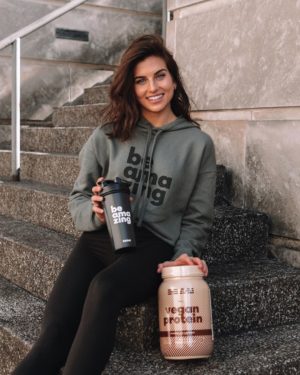
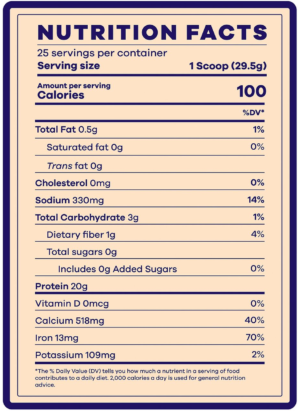
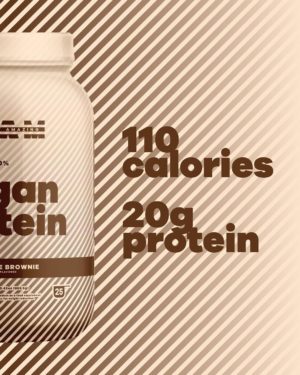
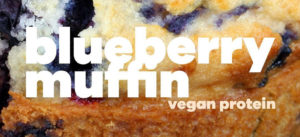
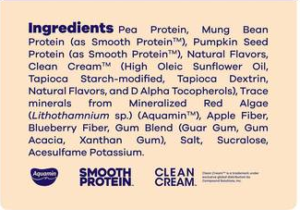
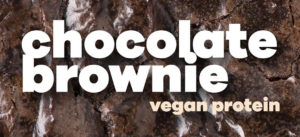
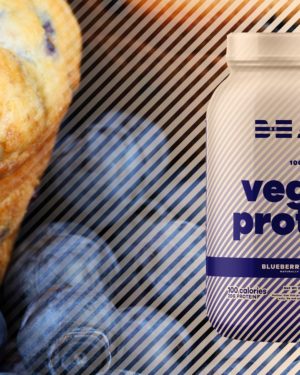



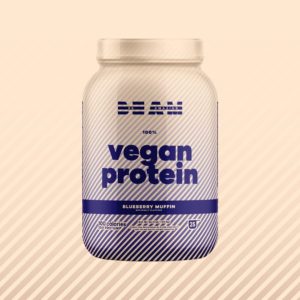


Comments and Discussion (Powered by the PricePlow Forum)